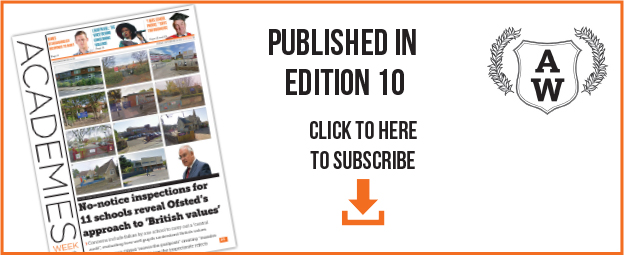Our blog reviewer of the week is Harry Fletcher-Wood, a secondary history teacher and head of teacher professional development @HFletcherWood
Teacher spends two days as a student and is shocked at what she learns
Washington Post
It’s worth overlooking the Buzzfeed-style headline and reading this Washington Post article. Readers may differ over this veteran teacher’s interpretation and suggestions based on two days as a student; I hope they’ll recognise her humility and willingness to learn from the experience.
Letters to a new history teacher, no 8
Schools History Project
Wise words from Esther Arnott, starting her “second NQT year” (having taken a year off as a new mother). “I will not let myself fall into the same habits again – and I beg you to try the same,” she begins. She puts the wisdom she has accrued to good use, for example, on not using textbooks: “I’ve now been privy to the monumental task it is to write a textbook. The hours, thought and care that go into each one are staggering.” Arnott offers six tips every teacher might do well to follow.
A podcast by thisamericanlife.org
Eye-opening and balanced, this podcast considers discipline in American schools. Featuring a boy repeatedly excluded from kindergarten, a student-turned-teacher from one of the first “No Excuses” charters, and a school that exclusively employs restorative justice dealing with an altercation with police on a school trip, the programme eschews easy solutions and raises more questions than answers. It’s a must.
No I don’t personalise learning
by Cristina Milos, @surreallyno
Cristina Milos shares her thoughts and research into the genealogy, problems and place of differentiation, personalisation and individualisation. “Those who dismiss differentiation either do not work with a truly heterogeneous group of learners or simply can’t be bothered to improve their practice.” But while personalisation works for older learners, she argues that although it “sounds intuitively great… what stemmed from a rather noble concept has turned, in my view, into a complete caricature: a dry behaviourist model… a complete progressive failure… or a cult of technology.”
Learning from my mistakes: Pinstriped Intervention
by Chris Curtis, @xris32
For my money Chris Curtis writes one of the most readable and thoughtful blogs in education. As a recently appointed head of department, he is forced to grapple with two (sometimes overlapping) spectres: interventions and meetings. Questioning the value of taking students out of lessons to discuss their performance with them, or of interrogating teachers, when students should be the focus, he comes up with a simple, novel and potentially effective way to intervene. “Plus” he notes “I will not be taking any students out of lessons.”
by Philip Moriarty
This wonderful post begins with a complaint: “This video has just added to the confusion about entropy.” Philip Moriarty, the video’s maker, asks whether this might not be a good thing. Offering well-evidenced heresy, he suggests that our efforts to increase clarity for students do them a disservice. When given a clear answer, one of five things happens: students think they know it, switch off, don’t recognise the differences between the answer and their idea, don’t learn anything or get more confident in their ideas. Reaching a point of confusion, Moriarty suggests, is a success, not a failure.













Your thoughts